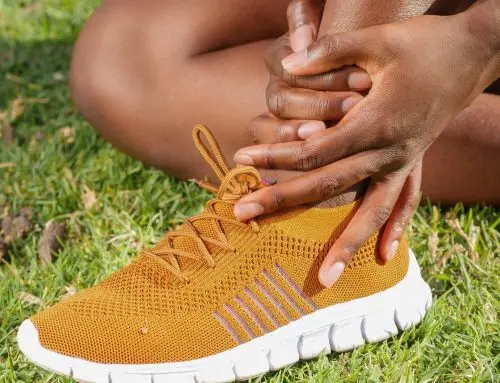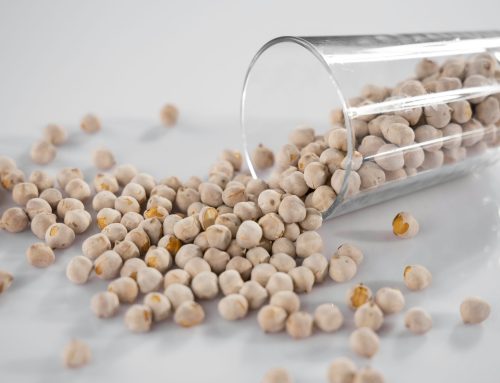As a shorter person, you might feel disadvantaged in certain sports like basketball. However, there are many sports where being shorter in stature is beneficial.
Being shorter often means you’re more agile and speedier, both of which are essential components of being a great sportsperson. You’re also less prone to some injuries as you’re closer to the ground (of course, this is a generalisation, so always play with caution)!
However, there are some sports where you’ll need to work twice as hard to succeed if you’re shorter in height. As annoying as this is, it’s something you can’t change and have to accept. Thankfully, there are several strategies you can use to increase your height and improve your abilities if the sport you’re interested in requires you to be slightly taller to succeed.
Below, we’ve covered some key strategies to use and implement in order to exceed as a shorter sportsperson.
Wear Suitable Clothes
The clothing you choose to wear when playing sports makes a significant difference in your performance and success. Depending on your chosen sport, you’ll need specific gear, so make sure to choose the best clothing for your needs.
For example, for soccer, you’ll need baggy, comfortable clothing that enables you to move around freely and remain agile during a game. If you hate soccer and prefer athletics, such as long-distance running or sprinting, you might need more form-fitting clothing to make yourself more streamlined so you can run faster.
Your shoes are also an important consideration. For sports requiring a lot of running, you’ll need to ensure your trainers are supportive yet breathable. For powerlifting or weightlifting, shoes with flatter soles are often better as they enable you to grip the ground more easily and stabilise yourself for heavier lifts.
Consider getting athletic elevator shoes to increase your height if your favourite sport puts you at a disadvantage for being shorter. These shoes have elevated platforms that add a few inches to your total height and enable you to optimise your sports performance.
Focus on Technical Proficiency
Technical proficiency refers to your ability to apply sport-specific techniques to your performance. It’s a crucial aspect of success in any sport, regardless of its nature.
Being technically proficient in your chosen sport can make up for the height difference you might have between you and your team players. It might involve being speedy on the field, having great ball control, and making accurate passes and shots.
The best way to improve your technical proficiency is to practice, practice, and practice some more. Sports skills are acquired, meaning the more time you put into improving your technical abilities, the better you will become on the field or court, on the track, or in the pool.
Emphasise Agility and Speed
Both agility, speed, and quickness are helpful skills (in fact, they’re essential skills) to possess as a sportsman or sportswoman. Shorter people tend to have a lower centre of gravity than taller individuals, which is an advantage when trying to run faster or dodge tackles.
Having a lower centre of gravity also improves your balance and coordination in many ways. You’re less likely to trip and fall over, even when you’re changing direction quickly or moving out of somebody’s way.
Practice various drills that improve your agility and speed, such as cone drills, ladder exercises, and shuttle runs. Incorporating each of these training techniques into your daily or weekly sessions will translate to better game or match performance.
Work on Your Strength and Endurance
Both muscular strength and muscular endurance play a key role in your ability to succeed as a sports player. With strong muscles that don’t get fatigued quickly, you’ll be able to run faster and further, kick a ball with more force, or swim with ease.
You can develop strength, flexibility, and endurance through targeted workouts. Doing so not only improves your sports performance but also reduces your risk of injuries during training sessions and games.
Of course, it’s important to tailor your workouts according to the skills required for your chosen sport and your current abilities. If you’re weaker in a certain area, whether it’s strength, endurance, coordination, or flexibility, identify your areas for improvement and work on them!
Learn from Others in the Same Situation
If you have fellow ‘shorties’ on your team, take this as an opportunity to learn and enhance your skill set. The shorter players on your team might have unique tactics and techniques they implement into their training and gameplay to maximise their performance and take advantage of their short stature.
Seeking guidance and support from other people who are similar to you can open your mind and help you push past your perceived limitations. In reality, having a shorter height doesn’t put you at a significant disadvantage, and you’re just as capable of succeeding in sports as your taller friends and team members.
You can gain valuable insights from those around you. You can learn techniques that have worked for them and implement these into your own gameplay. They can provide emotional support and reassurance when you’re struggling to accept your height.
Use Your Shorter Height to Your Advantage
You can use your shorter stature to your advantage in a number of sports. With a lower centre of gravity, you can maximise your speed and agility, and make it harder for your opponents to tackle you or dodge you.
Use your shorter height to leverage your physical abilities and give you a competitive edge in your chosen sport. Remember, being shorter can work in your favour, and you should never feel like your height is something to be ashamed of as a sportsperson. Embrace it and accept it as part of what makes you a unique sports player with a plethora of skills and abilities.








Leave A Comment